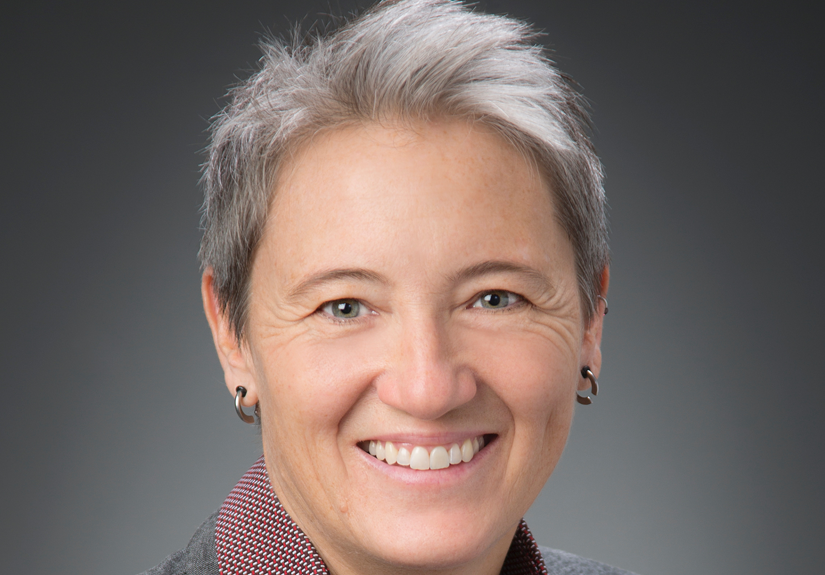The Graduate: Julia Applegate
By Julia Applegate

I remember the exact moment I knew I needed to return to Ohio State to get my MPH. I was the LGBTQ health program manager at Columbus Public Health and the health commissioner asked me to prepare a presentation for the board of health that included a reference to the “Principles of the Ethical Practice of Public Health.” I had been working in public health for 13 years and was passionate about the field, but I didn’t know this apparently seminal body of work. It was then that I realized my need for a more academic and theoretical knowledge of public health.
Fortunately I came across the Program for Experienced Professionals (PEP) at the College of Public Health and enrolled six months later. The flexibility of the program has allowed me to balance my time as a working parent, and the coursework has complemented my professional experience in countless ways.
From the practical to the theoretical, classes on subjects such as health care organization, strategic change, public health leadership and adolescent health have all augmented my ability to implement public health initiatives in my current role as director of the Institute for LGBTQ Health Equity at Equitas Health.
I am becoming a stronger public health professional because of what I’m learning in the PEP program and the relationships I have developed with faculty. I have a better grasp of the theoretical underpinnings of this profession because of my training, and as such am better prepared for the real-world public health challenges I face on a daily basis.
While it has been a challenge balancing personal, professional and educational obligations, I look forward to adding the letters M-P-H after my name in spring 2019 as an indication of my commitment to the principles that guide our work in public health.
Julia M. Applegate is director of the Institute for LGBTQ Health Equity at Equitas Health in Columbus, Ohio, which focuses on reducing health disparities experienced by the LGBTQ community through educating both patients and providers, supporting public health research with this population and engaging community members. She earned a Master of Arts in women’s, gender and sexuality studies from Ohio State in 1997, and is currently pursuing a Master of Public Health through the College of Public Health’s Program for Experienced Professionals (PEP).
Originally published in the spring/summer 2018 issue of Ohio State Public Health Magazine.
About The Ohio State University College of Public Health
The Ohio State University College of Public Health is a leader in educating students, creating new knowledge through research, and improving the livelihoods and well-being of people in Ohio and beyond. The College's divisions include biostatistics, environmental health sciences, epidemiology, health behavior and health promotion, and health services management and policy. It is ranked 22nd among all colleges and programs of public health in the nation, and first in Ohio, by U.S. News and World Report. Its specialty programs are also considered among the best in the country. The MHA program is ranked 5th and the health policy and management specialty is ranked 21st.